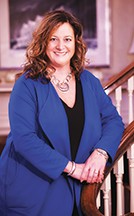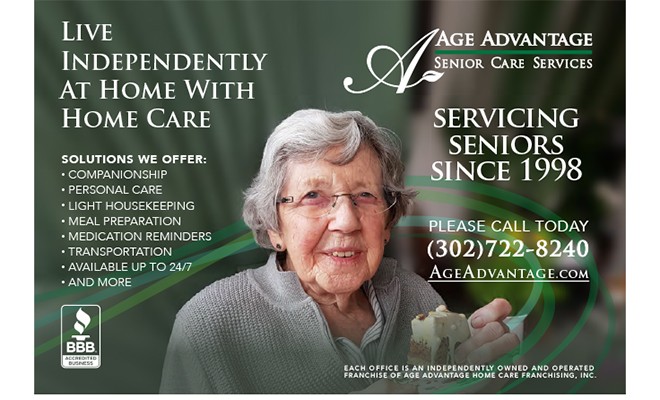Loss Of A Parent, A Pain No One Understands Until It Happens
 By Kristin Stetler Donovan, Owner, Age Advantage of Newark
By Kristin Stetler Donovan, Owner, Age Advantage of Newark
Everyone has a life with deadlines and commitments, our own personal joys and our own personal pains. It is safe to say that no one person is identical to another. That being said, each person is severely impacted by the loss of a parent, in “their” own way. Until I lost my parents, only two years apart, I couldn’t fully fathom the changes that indescribable loss would inspire and the emotions that would overwhelmingly consume me. One would think that once a parent is lost that the loss of a second parent should be easier to handle. This is a gross misconception. Every parental loss, whether natural, adoptive or that of a step parent will have a painful, but yet different impact on you for the rest of your life.
We tend to think of ourselves as children until we lose ours parents. It is only then that we are on the front line of mortality. Our parents are our first relationship, so when a parent dies, our anchor is taken away. This significant loss inspires us to rethink and reshape our personal priorities. After a parent dies, many people feel freer to marry outside their religion or ethnicity; people come out; people leave religion and people come to religion; people get divorces; all kinds of things.
We all grieve our parents for different reasons. Some of us have fond loving memories and others grieve because we were deprived of those memories for one reason or another. Some grieve a bad relationship and others grieve a relationship that was lost long before a parent’s death. Sometimes the grief of those who decided to eliminate a parent from their life or had a parent distance themselves experience a much more severe sense of loss and grief. Our parents are some of the most important people in our lives. Whether we stay in contact as much as we would like or not, their passing can really knock the breath out of you. At some point we will all die, but it is something we all have to come to terms with and when it happens to someone close to you it always catches you off guard, whether it is expected or not. No matter what the circumstance, the death of your mother or father will leave you feeling lost.
“When we meet real tragedy in life, we can react in two ways – either by losing hope and falling into self-destructive habits or by using the challenge to find our inner strength.” (Dalai Lama) When my parents died it caused me to do some significant soul searching. I realized that we all get one life, one shot, with no do overs. I made changes in my personal life and I recreated myself in my professional life in memory of my mother and my father. Watching someone who was once strong become weak and bedridden, suffer seizures, and eventually drift away eats away at you. It’s difficult to describe the wave of feelings that come and that overwhelm you. There is a fear of coping with the loss and a feeling of powerlessness because you cannot cure the illness and avoid the inevitable. I will never forget the moment sitting at my mother’s bedside when I accepted that I couldn’t fix what was wrong with her and she wasn’t going to get better. I accepted that within days my life would change forever. Having lost my father two years prior in a sudden death scenario hadn’t prepared me nor paved the way to accept the loss of my remaining parent. As I sat there I tried to figure out whether the sudden loss of a parent was easier or if watching your parent suffer and deteriorate over months and years was worse. What I ultimately came up with was: losing a parent is like losing a part of yourself. One thing became evident, we are stronger than we think. Somewhere inside of us is a resilience we never thought possible. We all process loss and grief in our own way, but as time goes on hopefully the sting lessens and our lives continue to be filled with other happy moments.
Often children try to support their parents’ needs without the help of others. For me, the help came from a hospice organization that helped my mother transition painlessly. For others they find relief and support in homecare organizations such as Age Advantage Senior Care Services. In conclusion, there is no weakness in asking for help, whether it be as an aging parent declines, during their passing, or after they have passed. If we can be of any assistance please contact us 302-722-8240 or visit www.ageadvantage.com.


